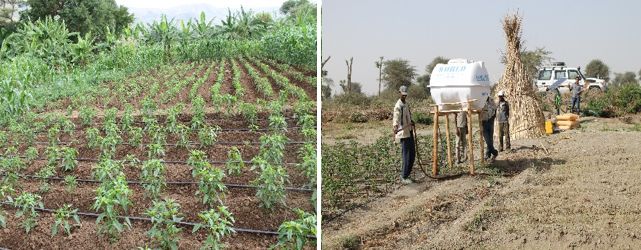The case of Ethiopia’s Rift Valley Region
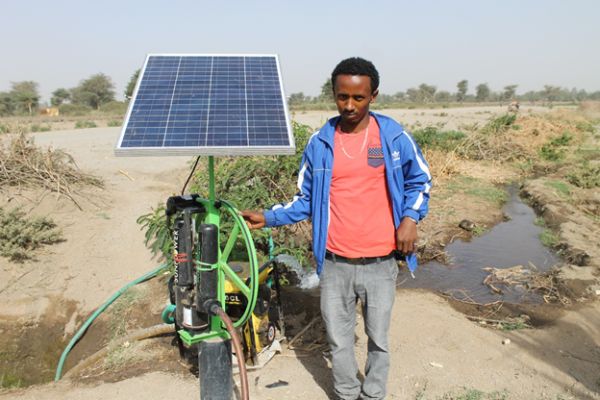
Agriculture in the Rift Valley Region of Ethiopia is overwhelmingly rain-fed. This means that for much of the year it is too dry to grow crops. However, experts believe that the region has huge potential for the development of groundwater irrigation. In December 2015, IWMI, in collaboration with the LIVES project, installed small solar pumps at a number of locations in in the Bora and Dugda districts of East Shoa Zone (Oromia Region) and in Bonke district of Arba Minch Zuria (Southern Nations, Nationalities, and Peoples’ Region). Each solar pump has the capacity to lift water from 6 meters depth and irrigate 2000 sq.meter (0.2 hectares). They have a water discharging capacity of 0.5 litres per second. LIVES and IWMI are also testing three farming technologies; furrow systems (through CROPWAT), drip irrigation (partnering with iDE) and traditional farm practices (aided by the new solar water pumps).
Why solar water pumps?
The smallholder farmers in the Rift Valley regions of Ethiopia that do currently irrigate usually produce cabbage, potato, onion and peppers. They rely heavily on diesel motor pumps, hand and treadle pumps, rope and washer pulley systems and labor intensive spray can application. All these technologies have either high operational costs or inputs of labor.
The new solar pumps should make irrigation easier and are aligned with government policies to improve small scale irrigation development. Since they emit no carbon, they also contribute to more sustainable agricultural practices. The intention is to identify appropriate business models that can boost small scale irrigation development in Ethiopia by saving water, reducing costs, and manage natural resources more sustainably.
We asked researchers and famers what they thought about the initiative:
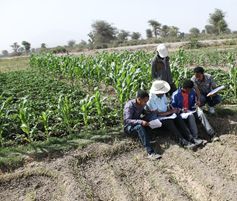
“Many small holder farmers in these regions are struggling to gain access to water during the dry seasons. If we can spread simple innovations, such as solar water pumps, more widely the farmers will be able to produce more and could make more money. Therefore, we are looking at the economics of promising technologies and practices by collecting data and doing analysis on the barriers and benefits to efficient use of water. We then develop business models for micro-irrigation development that will contribute to policy reform, infrastructure development, capacity development, access to use finance sectors, and so on.” Dr. Gebrehaweria Gebregziabher, project scientist.
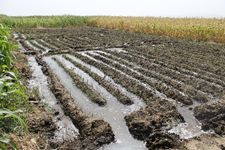
(Photo: Desalegne Tadesse)
“The solar pump makes our life very easy. Before this technology we were using diesel pumps that incurred us high running and maintenance costs and also we were using too much water that leads to scarcity.” Farmer Jambo, Bora district, Meki
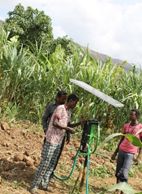
Farmer Godana Golande from Bonke district of Gamo Gofa agreed saying that, although he has water around, he is facing serious problems in efficient use and getting water to his plots requires a lot of energy and labor. The solar pump makes this and has other advantages such as household micro-irrigation development, livestock, domestic use and charging mobile phones.
